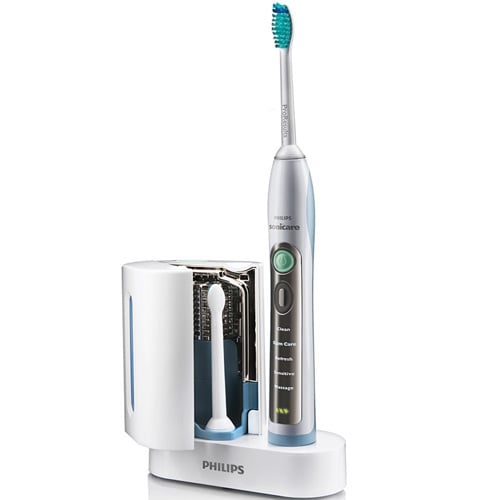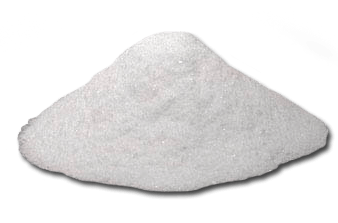Flossing
Break off about 18 inches of floss and wind some of it around your middle finger (3 turns); this finger will take up the floss as it becomes dirty. Shorten the length between the two fingers to 6 inches and wind some floss (1 turn) around the opposite middle finger. Hold the floss tightly between your thumbs and index fingers. Guide the floss between your teeth using a gentle rubbing motion. When the floss reaches the gum line, curve it into a C-shape against one tooth. Gently slide it into the space between the gum and the tooth. Hold the floss tightly against the tooth as you gently rub the side of the tooth with an up and down motion. Before retrieving it, reverse the C-shape to clean the adjacent tooth surface as well.
As you finish cleaning each tooth, wind the dirty floss once around the first middle finger and slide more new length of floss to proceed to the next teeth.
Brushing
Step 1 - Place bristles along the gum line at a 45 degree angle. Gently brush using a circular motion along the outer and inner tooth surfaces.
Step 2 - Brush each tooth individually. Tilt brush vertically behind the front teeth. Using the front half of the brush, use the same circular motion.
Step 3 - Place the brush against the biting surface of the teeth and use a gentle back-and-forth motion. Brush the tongue to remove odor-producing bacteria.
Sonicare
Sonicare's unique, patented combination of high speed bristle motion with extra wide sweeping motion creates effective, yet gentle, dynamic fluid cleaning motion. You get excellent plaque removal, especially in hard-to-reach areas such as between and below the gum line. You can count on naturally whiter teeth and healthier gums.
Sonicare is excellent in battling gum disease, dry mouth, bad breath and tooth sensitivity. Its sweeping motion is very good in cleaning around dental restorations such as implants, crowns and veneers as well as cleaning braces.

Fluoride
Fluoride, a substance that's found naturally in water, plays an important role in healthy tooth development and cavity prevention.
Fluoride combats tooth decay in two ways:
- It strengthens tooth enamel, a hard and shiny substance that protects the teeth, so that it can better resist the acid formed by plaque.
- Fluoride allows teeth damaged by acid to repair, or re-mineralize, themselves.
Fluoride cannot repair cavities, but it can reverse low levels of tooth decay and thus prevent new cavities from forming.
The American Academy of Pediatrics recommends that these fluoride supplements be given daily to children between the ages of 6 months and 16 years. The dosage will change as your child grows. Only children living in non-fluoridated areas or children who drink only non-fluoridated bottled water should receive supplements.
Most children get the right amount of fluoride through a combination of fluoridated toothpaste and fluoridated water or supplements. Too much fluoride before 8 years of age can cause enamel fluorosis, a discoloration or mottling of the permanent teeth. This condition is unsightly but harmless and often can be treated with cosmetic procedures.

Xylitol
Xylitol is a sugar substitute that is derived primarily from forest and agricultural products. The dental benefits of using Xylitol to prevent caries were first recognized and published in 1975. Xylitol is available in many forms such as gums, mints, chewable lozenges, toothpastes, etc. The efficacy of these products varies depending on two critical aspects which are the amounts of Xylitol contained, and the frequency of use. We recommend that you consult with your dentist about Xylitol and its benefits towards your oral health.
